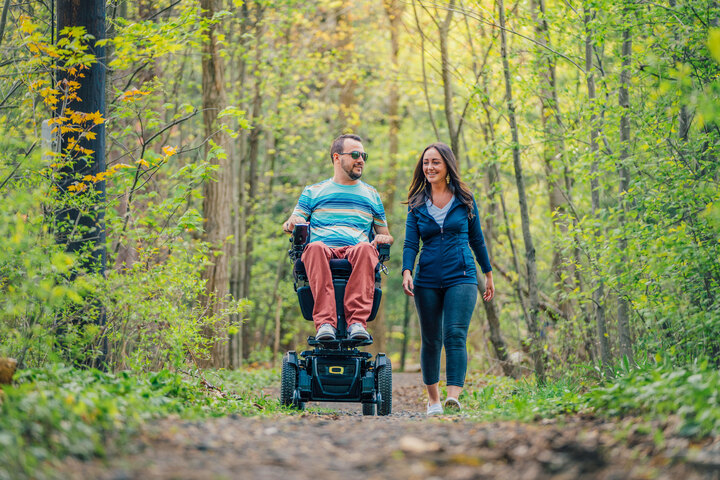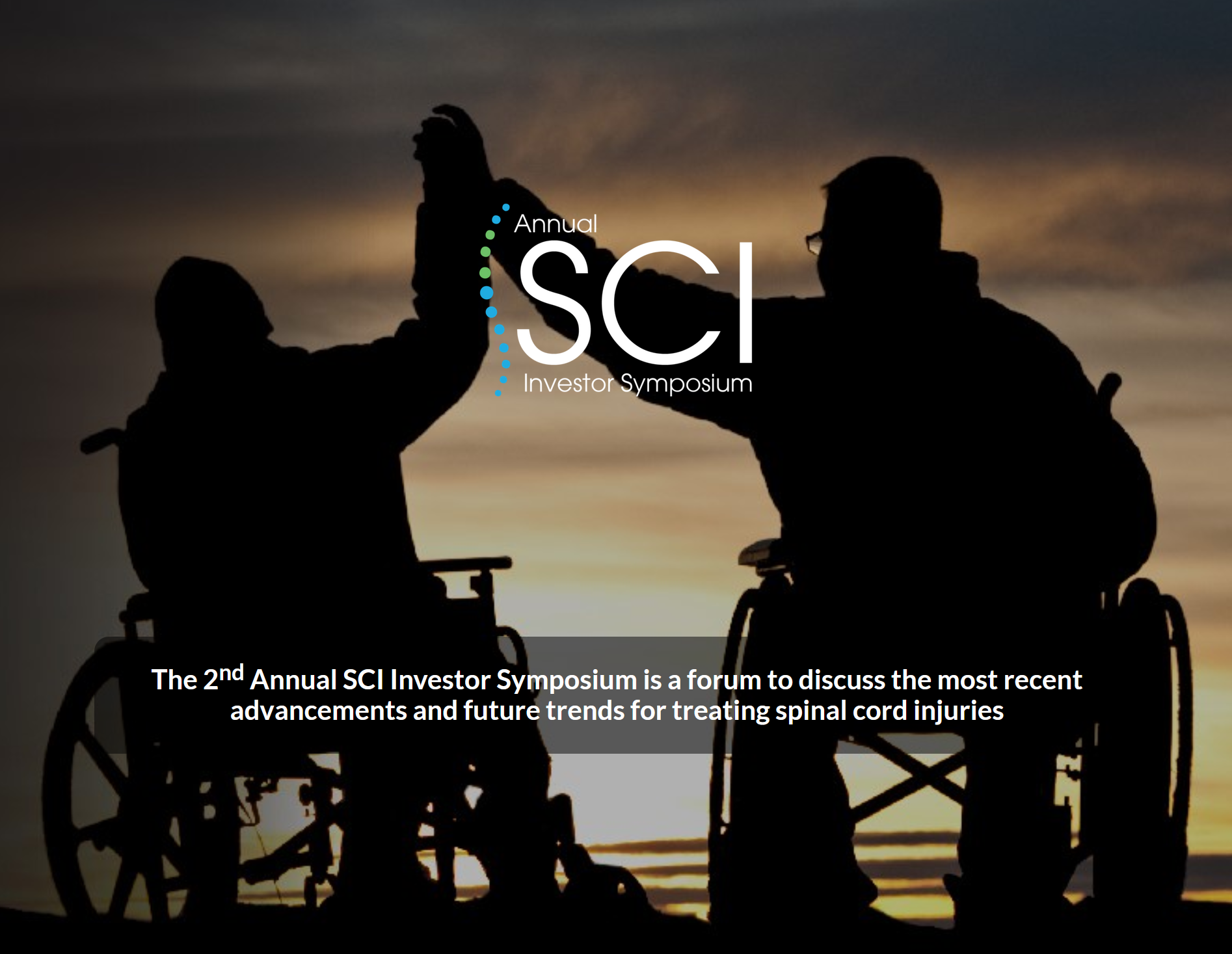International Spinal Cord Injury Foundations Announce Grants Enhancing Research for Restoration of Function in Spinal Cord Injuries
SHORT HILLS, N.J. and LONDON (February 24, 2022)
The Christopher & Dana Reeve Foundation and International Spinal Research Trust (ISRT) announced today $1.1million/£1 million in funding to support four research studies designed to restore neural/motor function primarily through novel circuit formation in chronic, traumatic spinal cord injury (SCI). The jointly funded grants are the first for the Reeve-ISRT collaborative alliance, established earlier last year to focus on fast-tracking SCI therapies using combinatorial interventions, innovative protocols and broad stakeholder engagement.
Each grantee is awarded up to $330,000 (approximately £250,000) over two-three years for the projects, which include input from clinicians to ensure the outcome measures are feasible and relevant in humans. In addition, grantees will publicly share data resulting from their research on a FAIR (Findable, Accessible, Interoperable, and Reusable) platform. The rigorous selection process was led by a Steering Committee and Scientific Review Board comprised of international experts in the field and individuals living with spinal cord injury.
“Uniting the brightest minds in the field as they work to translate breakthroughs and deliver real-world therapies is the core of our approach to funding cures for SCI and paralysis. Our alliance with ISRT is a model of the collaborative, global commitment required of the field to make cures possible,” said Maggie Goldberg, President and CEO, Reeve Foundation. “These first projects are a vital step toward meaningful therapeutics, and we’re excited to support this work.”
Each of the supported studies focus on delivering the translational research required to restore function primarily through novel circuit formation in chronic traumatic SCI.
Chris West, Ph.D., Associate Professor, University of British Columbia, CA
Previous research in humans with SCI has shown that daily intermittent hypoxia exposure – exposure to short, repeated periods of low oxygen, interspersed with exposure to normal oxygen – can contribute to improved breathing capacity, arm and leg function. These functional improvements are thought to occur because substances released during intermittent hypoxia may strengthen connections between the remaining nerves in the spinal cord. Low blood pressure can significantly impact individuals with SCI, causing decreased concentration, fatigue and productivity, as well as impacting long-term cardiovascular health. In this study, Dr. West will investigate intermittent hypoxia to improve low blood pressure in pre-clinical models of SCI, a novel application of this promising intervention.
Karim Fouad, Ph.D., Professor, University of Alberta, CA
Rehabilitative training is one of the best-known interventions for maximizing function in individuals with SCI. Post-injury, the nervous system enters an adaptive state, helping the body respond to training when initiated shortly after injury. However, this adaptive state declines over time, with a plateau in functional gains. This study will build on recently reported data that showed the adaptive state is potentially linked to trauma-induced inflammation. The current study will seek to understand the specific component(s) of the inflammation that is responsible for beneficial effects and find a more targeted and clinically useful treatment to “reopen” the rehabilitation window, extending the time period during which gains may occur.
Following SCI, a dense scar forms around the injured area, which is difficult for axons to penetrate. Two of the funded studies address this scar using a potent scar degrading enzyme, chondroitinase (Ch’ABC), which has been repeatedly shown to promote repair in animal models of SCI. Though this enzyme holds promise, its inherent instability and uncertainty about the best ways to apply it to the spinal cord have thus far impeded its translation into humans. One study incorporates Ch’ABC as part of engineered stem cells, while the other uses a newly developed, more stable version of Ch’ABC.
Molly Shoichet, Ph.D., Professor, University of Toronto, CA
In this study, Dr. Schoichet, a biomedical engineer, will use a more stable version of the scar degrading enzyme, called ChASE37-AR to determine the optimal method and material to deliver the enzyme for sustained penetration in the spinal cord. She will then apply the results of these findings in more clinically relevant models, moving chondroitinase applications closer to translation in persons with spinal cord injury.
“Accelerating the delivery of meaningful therapeutics is at the heart of our strategic alliance with the Reeve Foundation. These exciting translational awards are a first joint step on the journey towards the repair and restoration of the spinal cord.” Harvey Sihota, Chief Executive of ISRT (Spinal Research).
###
About the Christopher & Dana Reeve Foundation
The Christopher & Dana Reeve Foundation is dedicated to curing spinal cord injury by funding innovative research and improving the quality of life for individuals and families impacted by paralysis. By uniting the brightest minds in the field, we are working tirelessly to accelerate scientific discovery across the field of spinal cord research by investing in labs across the globe. Additionally, through a cooperative agreement with the Administration for Community Living, the Reeve Foundation’s National Paralysis Resource Center (NPRC) promotes the health, well-being, and independence of people living with paralysis, providing comprehensive information, resources, and referral services assisting over 100,000 individuals and families since its launch in 2002. The Reeve Foundation is committed to elevating our community’s voices and needs to achieve greater representation and independence. We meet all 20 of the Better Business Bureau’s standards for charity accountability and hold the BBB’s Charity Seal. For more information, please visit our website at ChristopherReeve.org or call 800-225-0292.
About ISRT
Spinal Research (ISRT) is the UK’s leading charity funding medical research around the world to develop effective treatments for paralysis. ISRT envisions a world without the consequences of paralysis by developing and delivering treatments to restore function to people living with spinal cord injury. Please visit https://spinal-research.org/ to find out more.











